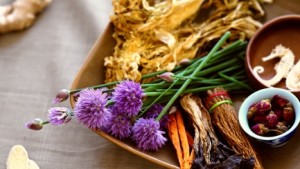Complementary and Alternative Herbs: What You Need to Know
 There are a few complementary wellness herbs around these days that everyone seems to know about. However, although alternative therapies such as aloe vera and echinacea are very popular, to get the best out of them, you need to understand what they actually do for your wellbeing. As these herbs, along with evening primrose oil, St. John’s wort and fenugreek, were the top five most-researched herbs in 2012, according to the National Centre for Complementary and Alternative Medicine, National Institutes of Health website, they seem like the best place to start.
There are a few complementary wellness herbs around these days that everyone seems to know about. However, although alternative therapies such as aloe vera and echinacea are very popular, to get the best out of them, you need to understand what they actually do for your wellbeing. As these herbs, along with evening primrose oil, St. John’s wort and fenugreek, were the top five most-researched herbs in 2012, according to the National Centre for Complementary and Alternative Medicine, National Institutes of Health website, they seem like the best place to start.
Firstly, though evening primrose oil is a known folk or traditional remedy for eczema, rheumatoid arthritis and menopause symptoms, evidence does not adequately support using this herb for treating these conditions. There is some, albeit limited, scientific evidence that some echinacea preparation might reduce the length or severity of colds in adults. However, some people may be allergic to the herb, and the ineffectiveness of echinacea has been demonstrated in four NCCAM-funded clinical trials.
When it comes to the effectiveness of St. John’s wort for depression, the research is conflicting. Though many members of the public are keen to use St. John’s wort to treat depression, the Food and Drug Administration has not approved its use as medicine. This may be because the remedy is known to cause certain serious side effects, and it also affects the metabolism of certain drugs, including antiviral medicines, antidepressants, birth control pills and anti-seizure medicines.
A few small studies have suggested that topical use of aloe vera gel can help to heal burns and abrasions, and it generally appears safe to use in this way. However, aloe is a strong laxative and in 2002 aloe laxative product manufacturers were found to provide inadequate safety data, and so the US FDA called for all over-the-counter oral aloe laxative products be removed from the market or reformulated.
Finally, fenugreek is probably the least well-known remedy on this list, but it is used for many purposes. This folk or traditional herb has been used to treat diabetes and loss of appetite, and breastfeeding women have used it to stimulate milk production. If you are pregnant, you should be wary of taking fenugreek as it has been used historically to induce childbirth. However, the scientific evidence to support using fenugreek for any health condition is lacking.

Comments are closed.